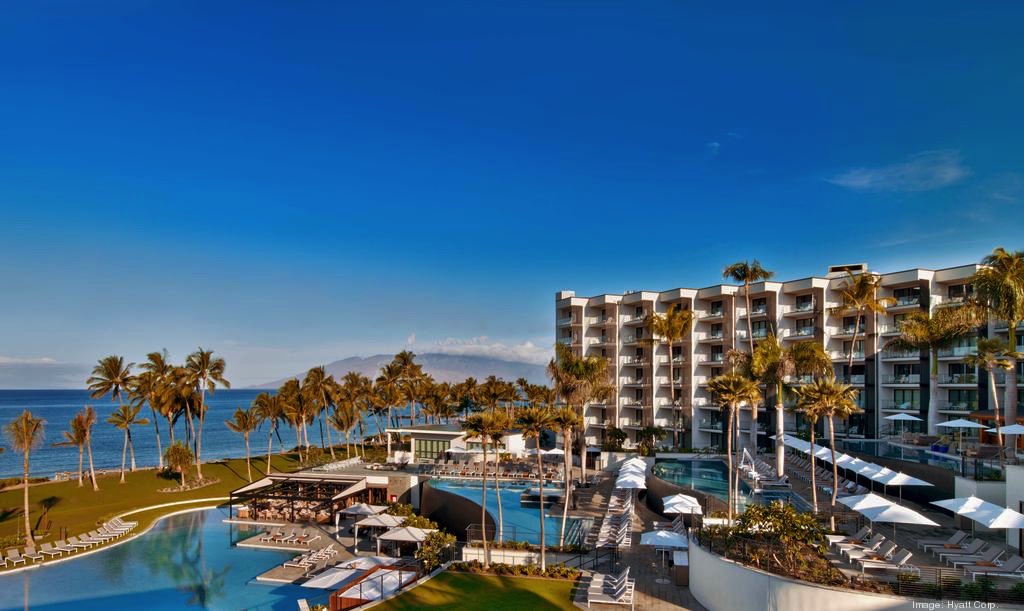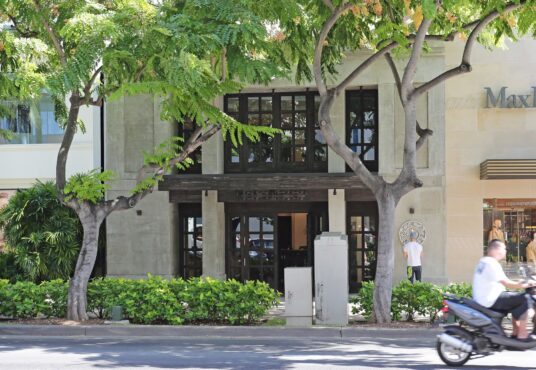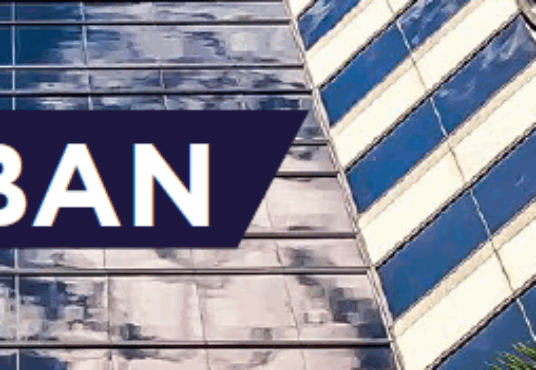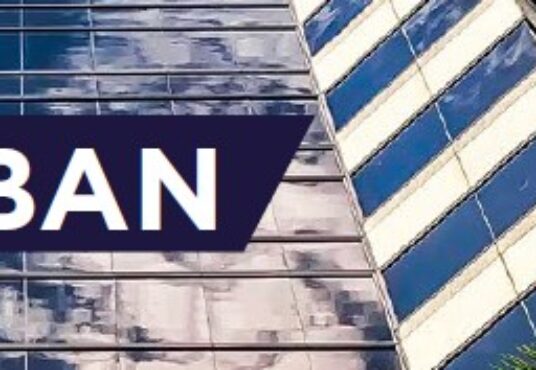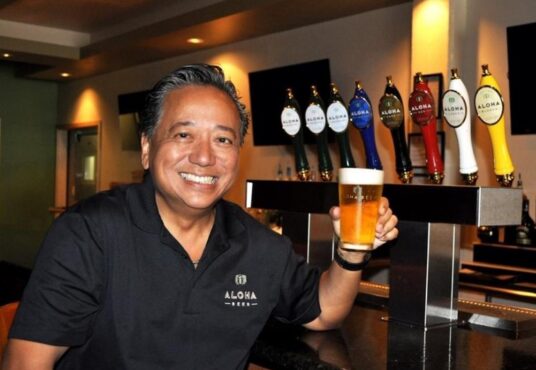Few industries in Hawaii have taken more of a beating during the Covid-19 pandemic than hospitality, as hotels, restaurants and activity businesses had to severely curtail or shut down their operations when the state imposed a mandatory 14-day quarantine for visitors arriving from the Mainland or overseas.
For hotels, the impact has been severe — a hotel without guests is a business without revenue. Hawaii hotels experienced a drop of more than $1 billion in revenue during the first half, or a 50% drop from 2019, according to a report released this week by CBRE’s Honolulu office.
And a business without revenue is a problem for hotel owners looking for returns on their investments — and lenders expecting payments on some very large loans.
After experiencing high rates of occupancy over the last couple of years, most hotels and resorts from Waikiki to Maui, Kauai and Hawaii Island dropped to near-zero occupancy after shutting down operations more than four months ago, furloughing thousands of workers.
A plan to allow international and Mainland visitors who present negative Covid-19 tests to bypass the mandatory 14-day quarantine was set to start Saturday but was delayed by a month to Sept. 1. However, that date was called into question recently amid a surge in new coronavirus cases.
Hotels have also been notifying the state Department of Labor and Industrial Relations over the past two months that they are expecting the thousands of temporary furloughs implemented in late March to continue for an additional six months or more, and some of those furloughs have been converted to permanent layoffs.
The lack of occupancy and revenue could signal a shift in ownership for some Hawaii hotels and resorts, as investors flush with cash seek out opportunities in a pandemic environment where current owners and investors struggle to pay their bills.
“It's going to have a devastating impact on the ownership of Hawaii hotels, and the capital stacks for the hotels, the ownership stacks, are essentially turned over,” said F. Kevin Aucello, who recently launched Powell & Aucello Hotel Real Estate Advisors with retired Hilton executive Tim Powell. “Because so many loans are not being paid right now, because there's obviously no income, we anticipate seeing a great deal of turmoil and a great deal of change.”
Nationally, revenue per available room, a key metric for hotels, dropped in the second quarter, by 79.9% in April, 74.2% in May and 60.6% in June.
But in Hawaii, the drop was more severe — 94.5% in April, 91.1% in May and 89.3% in June, according to the CBRE report, which said a 1% decline in RevPAR translates to a 7% decrease in operating profit because of the fixed costs associated with operations — including taxes, insurance, utilities, security and maintenance — as hotels burn through cash to keep the lights on.
“This is an unprecedented time … even after the 2001 bubble and Great Recession of 2008, hotels didn’t have to deal with losing money on the operations side before debt,” Henry Bose, senior vice president of hotel brokerage and investment sales at CBRE’s San Francisco office, told Pacific Business News. “The longer this goes on, that burn rate is really cutting into hotels across the country but especially in a market like Hawaii.”
Some hotels are going back to investors for more money to pay debt service, while others are looking for breaks on real property tax, said Hawaii hospitality consultant Erik Kloninger of Kloninger & Sims Consulting, who prepares the visitor plant report for the Hawaii Tourism Authority.
“Even with properties that have stayed open that are operating at 10% to 30% occupancy, that’s not enough to keep current on debt service generally,” he told PBN. “They’re looking to preserve the asset. If you shut down you still need to spend money to secure the asset and keep mechanical systems running.”
The hotels most at risk are the properties have traded hands since 2017. More than a dozen hotels across Hawaii, large and small, were acquired in that time period, “hotels that would have traded fairly recently at high pricing with a lot of debt on them,” Kloninger said.
“As prices have gone up and up, those deals made sense with the market running at – or near — historic record levels,” he said. “Assets that traded based on that type of market performance are going to have huge debt burdens on them.”
Other properties have refinanced during that time period, “taking advantage of the strong market and low rates,” he said.
Hawaii hotels that have traded hands since 2017
2017
- Alohilani Resort Waikiki Beach*, $515 million, Commerz Real
- Turtle Bay Resort, 2017, $332.5 million, Blackstone
- Mauna Lani Bay Hotel & Bungalows, $195.7 million**, ProspectHill Group/Pat Fitzgerald
2018
- Grand Wailea, $1.1 billion, Blackstone
- Andaz Maui at Wailea, 2018, $366 million**, Host Hotels & Resorts
- The Ritz-Carlton, Kapalua, $275 million, Blackstone
- Hilton Garden Inn Waikiki Beach, $212 million, Dune Real Estate Partners/Highgate
- Aston Waikiki Beach Hotel, 2018, $200 million*, Rockpoint/Highgate
- Princeville Resort, $225 million, Starwood Capital
- Courtyard by Marriott King Kamehameha’s Kona Beach Resort*, $103.5 million, Blackstone
2019
- Holiday Inn Express Honolulu-Waikiki, $205.5 million, Gaw Capital Partners
- Land beneath Alohilani Resort, $195 million, Safehold Inc.
- Land beneath Hilton Waikiki Beach, $78 million, HWB Hawaii LLC
- Park Shore Hotel*, $37.08 million, Dune Real Estate Partners/Highgate
- Maui Beach Hotel, $27.5 million, Ampersand Venture 1 LLC
- Travaasa Hana, $27.4 million, Mani Brothers Real Estate Group
- Ewa Hotel Waikiki*, $19.6 million, Belluna Honolulu LLC
* Leasehold | ** Real estate only
While such details are not always public, there are acquisition loans and refinancing deals in the hundreds of millions — if not billions — of dollars for other Hawaii hotels.
Nationally, 20 hotel loans unexpectedly defaulted by June 30, according to a recent report by Fitch Ratings, which expects more than 3,200 loans to default over the next few months because of the pandemic.
“The properties that traded over the past two years probably traded at the top of the market,” said Steve Sombrero, president and CEO of Cushman & Wakefield ChaneyBrooks. “The values that were seen at that time no longer apply today. The [loans are] probably upside down right now.”
Ben Rafter, CEO of OLS Hotels & Resorts and a member of the HTA board of directors, recently said during a virtual panel discussion on tourism that when the pandemic started, most lenders granted three-month extensions on debt and ground-lease payments, and said owners were likely to get another extension.
“Almost all hotel investors are under pressure,” Rafter told PBN in an interview. “For those that have had strong relationships with banks, the banks have been showing some flexibility. In Hawaii, especially for small investors, local players, that’s beneficial because it gives them time for things to work out and for the market to come back.”
However, some Hawaii hotel acquisitions have been financed with commercial mortgage-backed securities, some of which are delinquent and have been transferred to special servicing, which traditionally have been the first steps to foreclosure.
But CMBS is “very inflexible,” Rafter noted.
“Special servicers … who have CBMS loans, on those loans, the covenants are very clear and the documents say if the payments are not made then the special servicer has to take action, so it's more concrete on what they have to do,” Aucello said. “We anticipate that the CMBS loans will be the first ones that will have some kind of foreclosure activity.”
Aucello also said some investors may inject additional “rescue capital” into properties as a way to help them stay afloat, but also as a way to acquire an ownership stake — silent or participating — in the property.
But despite the risks of loans defaulting, most hotel experts believe few, if any, Hawaii hotels will end up in foreclosure, and even those headed in that direction would likely be acquired by investors long before they end up at auction or returned to the lender.
One big difference between the current situation and past downturns, Bose said, is that “there’s a stable of extremely well-capitalized investors looking for opportunities.”
Steve Sombrero, president and CEO of Cushman & Wakefield ChaneyBrooks, said he’s already been contacted by investors seeking to invest in Hawaii hotel properties.
“There’s a lot of capital out there,” Sombrero said. “I get calls from both sides of the Pacific with huge capital just waiting to deploy.”
Sombrero said savvy investors interested in acquiring troubled properties will go directly to the lenders.
“Lenders know who they can rely on to come through with capital, and if they want to keep the debt on the property,” he said. “It’s not enough that you have the capital to take over the property, you have to show you have the ability to manage it and survive through the coronavirus."
Kloninger noted that before the pandemic started, Hawaii, and Waikiki in particular, was “one of the most coveted investment markets.”
“Because it’s a market with very high barriers to entry, you don’t have the concerns about additional competitive supply,” he said. “There are a lot of investment dollars keen to get into Waikiki, looking for opportunities.”
Both Rafter and Sombrero see Hawaii emerging from the pandemic as an attractive, safe place for visitors to vacation and investors to place their capital.
Rafter said the Islands have the advantage of not being overbuilt like other markets, such as New York, and said people still want to travel to Hawaii.
“This is a once-in-a-generation shock that we’re going through,” Rafter said. “Markets that are viewed as safe are going to be attractive and people are going to want to come here because it is safe.”
For investors, Hawaii will “enter the radar of some people who have not viewed Hawaii as a market to invest in in the past.”
And they are unlikely to find bargains in the Islands — Rafter believes the floor in values will end up being higher that some people think.
“We know that there will be deals but I think that those deals will be on a higher cents-of-a-dollar [basis] than people think because there’s so much capital on the sidelines and Hawaii remains an attractive destination,” he said.
Sombrero said he is “bullish on the hospitality business,” and noted that once a Covid vaccine is available in Hawaii, there may be a surge in high-net-worth travelers from Asia seeking to get the vaccine before it’s available in their countries. Hawaii may also enter into a travel arrangement with those countries — Japan this week included Hawaii on a list of 12 possible international travel partners.
“I think this is a tremendous opportunity for people who can understand that and acquire properties toward that end,” he said, noting that Japan, South Korea, Hong Kong and Taiwan have investors ready to buy. “These nations, they have some of the lowest Covid cases, so it really makes sense that if Hawaii is in a position to reopen it would be with these countries.”
Rafter noted that as a leisure travel destination, Hawaii is fairly insulated from the disruption to business travel the pandemic has brought about. Companies that have gained increased comfort with virtual meetings and events may not go back to shuttling employees around the country after the pandemic.
“I see leisure coming back first, which makes us a little healthier than the Mainland,” he said, adding that it’s unlikely many hotels would close permanently. “I don’t see a situation like in New York, where 10% of the inventory could be gone.”
In the near term, however, hotels are waking up to the reality that occupancy is not going to return to 2019 levels anytime this year, and Rafter noted that even if travel resumes on Sept. 1, “the flood of inventory coming back on the market is going to be more than the demand,” before a possible rebound in 2021.
Rafter sees this as a time that hotel owners can rethink the Hawaii market.
In the long term, investors could reposition properties, “downkey” to fewer, but larger, rooms or suites to accommodate families, he said.
He also sees an opportunity in the long term for hotel owners and operators to position Hawaii away from “sun and sand” to put more emphasis on food and beverage, culture, community and history.
“Long term, I really like Oahu as a market because it’s a market where we can showcase all of Hawaii,” he said.
“If there are silver linings, I think we can accelerate toward that,” he said. “That’s critical for Hawaii’s future, the next generation wants a little more in an experience, to understand the host culture. If we don’t go down that path …we’re making ourselves less competitive for future travelers.”
日本語版
ハワイのホテル業界に関する今後の投資効果
Covid-19 のパンデミック中、ハワイの産業の中でホスピタリティ業界ほど大きな痛手を受けた業種はない。米国政府が本土並びに海外からの渡航者に対して14日間の自主隔離を義務付けた際に、ホテル、レストラン、各種アクティビティビジネスは営業を大幅に削減または停止せざるをえなかった。
ホテル業界にとってその影響は甚大であった。宿泊客がいないホテルはすなはち収益のないビジネスだ。CBREハワイ支局が今週発表した報告によると、ハワイのホテル業界は上半期の収益が10億ドル減となり、2019年の半分まで落ち込んだ。
また、収益ゼロのビジネスは、投資に対する見返りを求めるホテルオーナーや、非常に高額の貸付に対して返済を見込んでいる貸付業者たちにとっては一大問題だ。
過去2年間客室の高専有率を謳歌していたが、ワイキキからマウイ島、カウアイ島からハワイ島に及ぶほとんどのすべてのホテルやリゾートでは、4ヶ月以上前に営業を停止して以来、客室専有率がほぼゼロ近くまで下落し、何千人もの従業員が一時解雇状態となっている。
海外および本土からの渡航者のうち、Covid-19テストで陰性反応を示した人々には14日間の自主隔離を義務付けないというプランが8月1日(土)に発効する予定だったが、9月1日までさらに1ヶ月延期となった。しかしその日程も、新たなコロナウィルス感染者の急増により、先ごろ疑問視され始めている。
ホテル業界も過去2ヶ月間にわたって国の労働省・労使関係に対し、3月末に実施した何千人もの一時解雇が今後6ヶ月以上続くと思われ、それらの人々の一部は永久解雇となっている旨を通告している。
客室専有率と収益の不足によって、ハワイの一部のホテルとリゾートの所有状況に変化が起こる可能性がある。このパンデミックの状況下で現在のオーナーおよび投資家たちが返済に四苦八苦する中で、キャッシュをふんだんに抱える投資家たちが投資機会を求めているからだ。
「これはハワイのホテル所有に壊滅的な影響を及ぼし、ホテル業界の巨額の資本、数々の所有権が、本質的に入れ替わってしまう」とF. Kevin Aucelloは言う。彼はヒルトンの元重役Tim Powellと共に、最近Powell & Aucello Hotel Real Estate Advisorsを立ち上げた。「現在あまりにも多くの貸付に対する返済が滞っており、言うまでもなく収益もないため、非常に大きな混乱と変化が起こってくると予測している」
全国的には、ホテル業界の主な指標の一つであるRevPAR(販売可能な客室1室あたりの売上)が第2四半期に下落し、4月に79.9%、5月に74.2%、そして6月に60.6%の落ち込みを示した。
しかしハワイにおける下落率はさらに深刻で、CBREの報告によると、4月に94.5%、5月に91.1%、そして6月に89.3%の落ち込みを示している。またCBREの報告書では、RevPARの1%減は営業利益7%減に相当すると言っているが、それはホテルがキャッシュを食いつぶしながら細々ながらも存続していく上で、税金、保険、水道・光熱費、セキュリティ、メンテナンスといった営業上の固定経費があるためだ。
「こうした事態は前代未聞です … 2001年のバブル崩壊や2008年の大恐慌の後ですら、負債は別としてホテルが営業部門で資金不足となるような事はなかった」とCBREのサンフランシスコ支部でホテル売買仲介および投資販売部門のシニアバイスプレジデントを務めるHenry Boseがパシフィック・ビジネスニュース(PBN)に語った。「この事態が長引けば長引くほど、運営資金の焦げ付きが全国のホテルに大きな負担となっていき、ハワイのような市場ではそれがさらに顕著になる」
債務元利払いに必要な追加資金を求めて投資家のところへ再度頭を下げに行くホテルもあれば、固定資産税の節税を目指すホテルもある、とErik Kloningerは言う。彼はKloninger & Sims Consultingでハワイのホスピタリティ業界コンサルタントを務め、ハワイ州観光局のビジター・プラント・インベントリー報告書を作成している。
「10%から30%の客室専有率で営業を続けた施設でさえ、大体において債務元利払いに遅延しないようにすることが難しくなっている」とKloningerはPBNに語った。「ホテルは資産を維持しようとしている。営業を停止しても、資産を確保し機械系統を動かし続けるにはやはり経費がかかる」
最大のリスクに瀕しているホテルとは、2017年以降にオーナーの替わった施設だ。ハワイ州内の大小各種ホテル十数軒以上がその時期に買収されているが、それらは「比較的近年なら、大きな債務を抱えたままの状態でも高額で売買されていたはずのホテル」だとKloningerは言う。
「価格がどんどん上昇していくにつれて、史上最高レベル、もしくはそれに近いレベルで取引が行なわれている市場については、そうした売買もきわめて現実的なものだった」とKloningerは言う。「そのような市場実績に基づいて取引された資産というのは、膨大な債務負担を抱えこむことになる」
「他の施設については、強気の市場と低金利に乗じてその時期にリファイナンスしている」と彼は言う。
2017年以降にオーナーの替わったハワイのホテル
2017年
- アロヒラニ・リゾート・ワイキキビーチ*、5億1,500万ドル、Commerz Real
- タートルベイ・リゾート、2017年、3億3,250万ドル、Blackstone
- マウナラニベイ・ホテルアンドバンガローズ、1億9,570万ドル**、ProspectHill Group/Pat Fitzgerald
2018年
- グランド・ワイレア 、11億ドル、Blackstone
- アンダーズ・マウイ・アット・ワイレア、2018年、3億6,600万ドル**、Host Hotels & Resorts
- ザ・リッツ・カールトン、カパルア、2億7,500万ドル、Blackstone
- ヒルトン・ガーデン・イン・ワイキキビーチ、2億1,200万ドル、Dune Real Estate Partners/Highgate
- アストン・ワイキキビーチ・ホテル、2018年、2億ドル*、Rockpoint/Highgate
- プリンスビル・リゾート、2億2,500万ドル、Starwood Capital
- コートヤード・バイ・マリオット・キング・カメハメハズ・コナビーチ・リゾート*、1億350万ドル、Blackstone
2019年
- ホリデイ・イン・エクスプレス・ホノルル-ワイキキ、2億550万ドル、Gaw Capital Partners
- アロヒラニ・リゾートの敷地、1億9,500万ドル、Safehold 株式会社
- ヒルトン・ワイキキビーチの敷地、7,800万ドル、HWB Hawaii 有限責任会社
- パーク・ショア・ホテル*、3,708万ドル、Dune Real Estate Partners/Highgate
- マウイ・ビーチ・ホテル、2,750万ドル、Ampersand Venture 1 有限責任会社
- トラバーサ・ハナ、2,740万ドル、Mani Brothers Real Estate Group
- エワ・ホテル・ワイキキ*、1,960万ドル、Belluna Honolulu 有限責任会社
* 土地貸借権 | ** 不動産のみ
そうした詳細情報は常に公開されているわけではないが、何十億ドルまでいかずとも、何億ドル単位という規模で、ハワイのホテルの買収資金融資やリファイナンス取引が行なわれている。
全国的には、6月30日までに20件のホテル債務が予想外にも不履行となっている。このことから、パンデミックに端を発する債務不履行が今後数カ月の間にさらに発生すると思われる。
「過去2年間に売買された施設は、おそらく市場の最高レベルで取引されている」とCushman & Wakefield ChaneyBrooksの社長兼CEOを務めるSteve Sombreroは言う。「当時見積もられていた価格は今ではもう妥当ではない。おそらくその貸付は現在逆になっているだろう」
OLSホテルズ&リゾーツのCEOでHTA重役会役員を務めるBen Rafterが先日の観光業界に関するオンラインパネルディスカッションで語ったところによると、パンデミックが始まった当時、ほとんどの債権者が債務と土地賃貸借の支払いに関して3ヶ月の猶予を与えており、ホテルオーナーらは今後さらに猶予が望めるだろうという。
「ほとんどすべてのホテル投資家たちがプレッシャーを感じている」とRafteはPBNとのインタビューで言及する。「銀行と密接な関係を保ってきた投資家たちに対しては、銀行はなんらかの形で融通を利かせる。ハワイでは、特に小規模投資家たちや地元の有力者たちにとって、そうした処遇が助けとなる。ビジネスが回っていき、市場が戻ってくるのを待つ時間が稼げるからだ」
しかし、一部のハワイのホテルの買収は商業用不動産ローンを後ろ盾とする株式によって融資されており、そのうちの幾つかのホテルは返済不履行に陥って特別元利返済へまわされる。こうなると通常は差し押さえへの第一歩を踏み出したということを意味する。
しかし、CMBSは「極めて杓子定規だ」とRafterは言う。
「特別元利返済業者というのはCBMSローンを取り扱っており、返済不履行に陥ったローンに関する契約条項は極めて明確になっている。その文書内には『支払いがなされない場合は、特別元利返済業者はそれなりの措置を講じる必要がある』と記載されており、彼らがとるべき手段はさらに具体的に示されている」とAucelloは言う。「CMBSローンを皮切りとして、差し押さえへ向けてのなんらかの動きがあるものと我々は考えている」
また、Aucelloによると、一部の投資家が施設になんとか経営を継続させる手段として「救済資本」を追加投入する場合もあるが、それは又その施設の所有権を買収する手段でもあり、つまり静観するか関与を示すかの賭けに出るのだという。
しかしローンの債務不履行というリスクにもかかわらず、ほとんどのホテル専門家は、差し押さえという事態に陥るようなハワイのホテルはほとんど無く、実際に差し押さえになりかけているようなホテルですら、オークションや投資家への払い下げという結末をたどるまでもなく、近いうちに投資家に買収されるだろうと信じている。
Boseは、現在の状況と過去の不景気との大きな違いとして、「極めて巨額の資本金を抱えながら投資機会をうかがっている投資家集団が存在している」ことだと言う。
Cushman & Wakefield ChaneyBrooksの社長兼CEOを務めるSteve Sombreroは、ハワイのホテル物件に投資したがっている投資家からすでに連絡を受けていると言う。
「資本金はあるところにはあるものです」とSombrero は言う。「いつでも出資可能な巨額の資本を有する投資家たちが、太平洋を挟んだ両側から電話をかけてきている」
Sombreroによれば、傾きかけている物件の買収を狙っている抜け目のない投資家たちは、直接貸付業者のところへ行くという。
「貸付業者らは、資金を提供する上で信用できる相手は誰か、そしてその物件に対して債務を負うべきかどうか、ちゃんと心得ている」と彼は言う。「物件を買い取る資金を持っているだけでは十分ではない。その物件を管理し、コロナウィルスのパンデミックを乗り切る能力を持っていることを示す必要がある」
Kloningerによると、パンデミックが始まるまでは、ハワイ、特にワイキキが「 もっとも注目されている投資市場の一つ」であったという。
「ハワイは非常に参入しにくい市場であるため、追加的な競争力の導入を心配する必要がない」とKloningerは言う。「ワイキキに何とか参入しようとしている巨額の投資資金が、虎視眈々とチャンスをうかがっている」
RafterとSombreroの両者共、ハワイがバケーションに訪れる人々や投資先を求める投資家たちにとって魅力的で安全な場所としてパンデミックから浮上してくると考えている。
ハワイの強みとして、ニューヨークのような他の市場のようにホテル群が過密状態になっておらず、人々はやはりハワイに魅かれるのだとRafterは言う。
「このパンデミックは、自分たちの代に一度しか経験しない大きなショックだ」とRafterは言う。「安全と思える市場が人々を惹きつけ、安全性が理由で人々はハワイに行きたいと思うようになるだろう」
投資家にとって、ハワイは今後「これまでハワイを投資すべき市場と考えなかったような人々にとっても、投資対象の範疇に入ってくる」だろう。
また、ハワイでは格安物件を見つけるのが難しい。Rafterは、価格の最低基準が一部の人たちの考えているよりも高いレベルに落ち着くだろうと考えている。
「格安物件は出てくるが、皆が考えている以上に割高な取引となると思う。巨額の資本が機会をうかがって控えているし、ハワイが人気の旅行先であることは変わらないからだ」とRafterは言う。
Sombreroは「ホスピタリティ業界に関しては強気」だと言い、Covid-19のワクチンがハワイで入手可能になれば、アジアの富裕層が自国でワクチンが出回る前に入手しようとハワイへ押しかける可能性があると言及する。ハワイがそれらのアジア諸国と渡航条件の調整に入ることも考えられる。今週、日本は12の海外渡航提携先候補のリストにハワイを含めている。
「そうしたことを理解し、その時に向けて買収を行う人々にとっては、今は絶好の機会だと考える」とSombreroは言い、日本、韓国、香港、そして台湾には買収の用意のある投資家たちが控えていると言及する。「これらの国ではCovid-19羅漢者数が最低レベルとなっており、もしハワイが再開するとすれば、まずはこれらの国々が対象となるのはごく当然なことだ」
観光目的の渡航先としてのハワイは、パンデミックによるビジネス渡航の崩壊の影響をさほど受けることは無い、とRafterは言う。オンラインによる会議や催しにかなり慣れ親しんできた企業たちは、パンデミックが収束した時にはもう社員を国内のあちこちに出張させるようなことをしなくなる可能性もある。
「観光目的の旅がまず最初に戻ってくると思っている。そうなればハワイは本土よりも多少は健全な状態になる」とRafterは言う。また、多くのホテルが永久に店じまいをすることは考えにくいと言及する。「ニューヨークにおけるような状況は予想していない。ニューヨークではインベントリーの10%が失われる見込みだ」
しかし短期的には、ホテルの客室専有率が年内に2019年レベルまで戻ることはないという現実が待っている。Rafterによると、9月1日に渡航が再開されたとしても、2021年に経済のリバウンドがある
までは、「市場に再びインベントリーがなだれ込んでも、需要がそれに追いつかない」という。
Rafterはこの時期を、ホテルオーナーがハワイ市場について見直す時だと見ている。
長期的には、投資家たちは物件選びについて、客室の数は少ないが家族で使えるようなより広い客室またはスウィートルームへと「下方修正」することも一案だ、とRafterは語る。
さらに彼は、長期的に考えた場合、ホテルオーナーや営業者がハワイのイメージを「太陽と砂浜」から切り離し、食べ物や飲み物・文化・地域性・歴史といったものをもっと強調していくように方向転換する良い機会であるとも考える。
「長期的には、市場としてオアフに非常に期待している。オアフはハワイの全面的な魅力を提供することができる」とRafterは言う。
「希望の光があるとすれば、そうした方向へ向けて加速していくことだと思う」と彼は言う。「これはハワイの将来にとって非常に重要なことだ。次世代の人々は旅先の文化を理解するためにもう少し付加的な経験を求めている。そうした傾向に対応していかなければ、これからの旅行者たちに対して我々は競争力を低減させることになる。」
